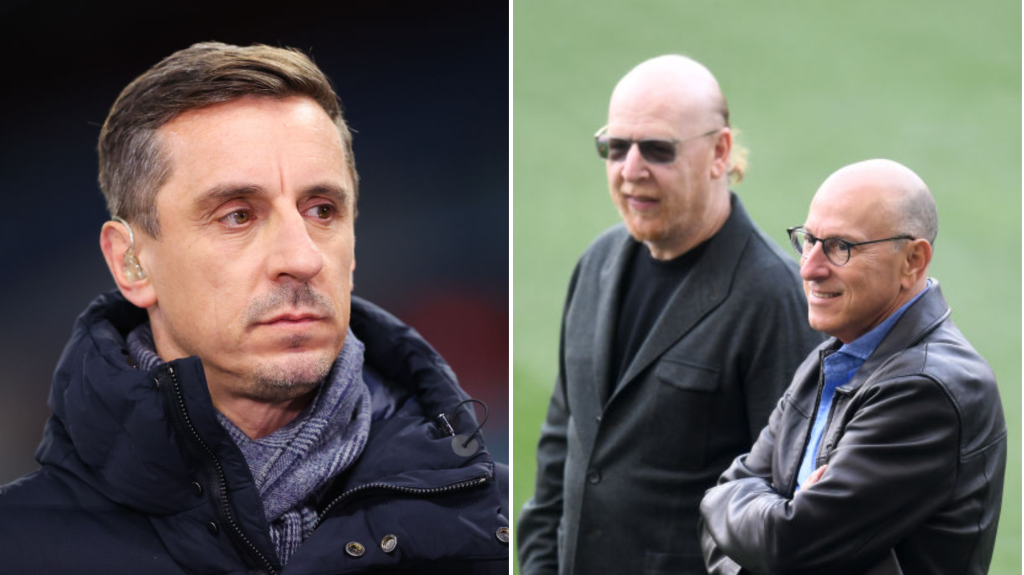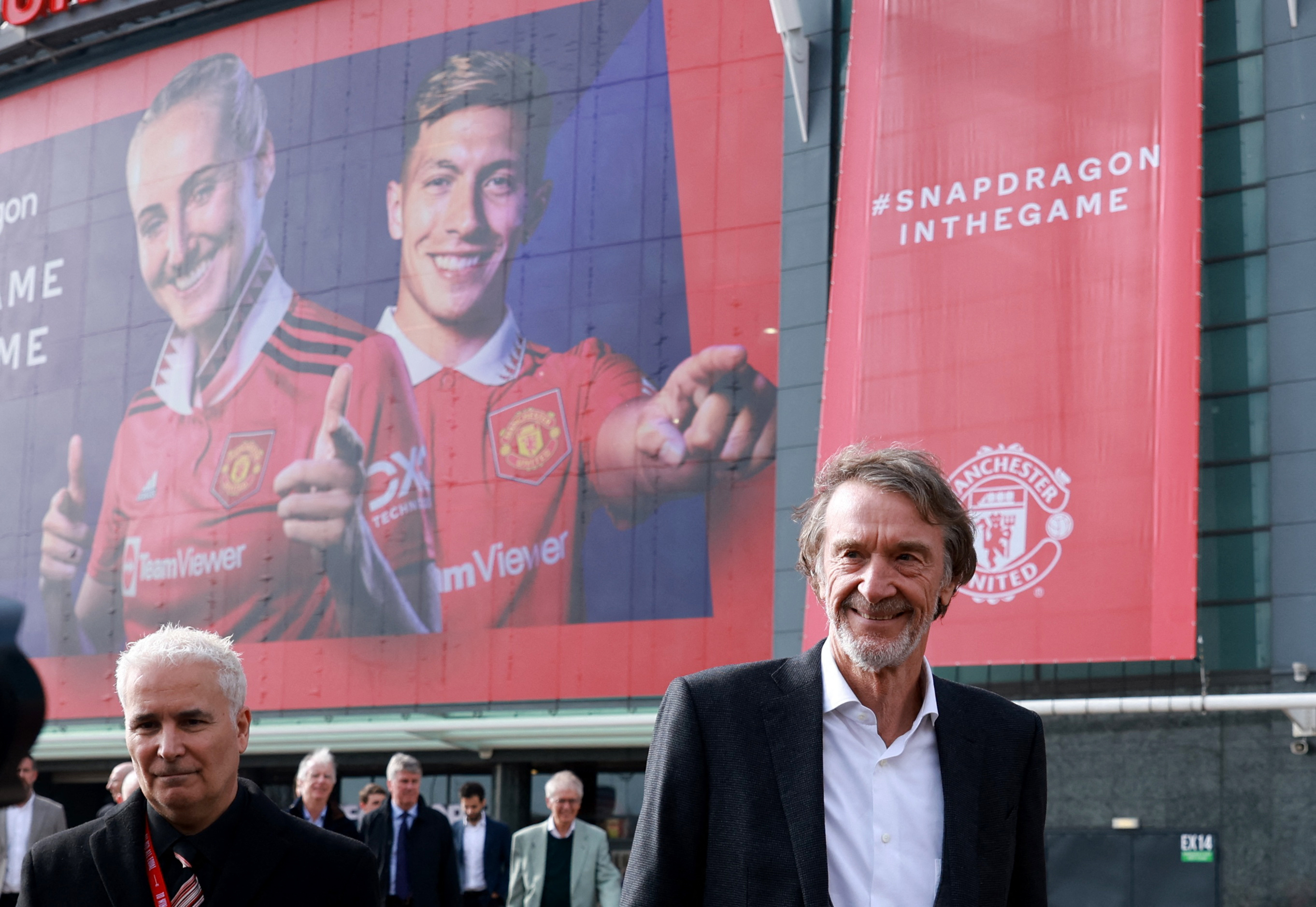
Gary Neville has hit out at the Glazer family over their decision to undertake a third round of bidding and says it will be ‘toxic’ if they do not sell quickly.
British billionaire and Qatari banker Sheikh Jassim bin Hamad Al-Thani – among other suitors – submitted their second-round proposals to buy the club nearly a month ago and have heard nothing since then.
Bidders by the lack of updates and are now claiming the process will enter a third stage, with fresh offers needing to be submitted by April 28.
United legend Neville is livid with how the bidding process is being drawn out, calling the Glazers’ tactics ‘classless’, and says they need to sell quickly to give the new owners a chance to invest in the summer transfer window.
Reacting to reports that there would now be a third round of bids, Neville tweeted: ‘They’re making it up as they go along! Shoddy way to run a sale process.
‘They need to get out by the end of May to allow the new owner a fighting chance to impact the next transfer window and get moving!
‘Taking it to a third round is just classless. The market has obviously not given them the answer they want!

‘It’s like they’ve made a pact to each other that they won’t go for less than £1billion for each family member (five of them).
‘If they stay in after all this it will be toxic!’
He continued: ‘If they don’t sell they will have to bring investors in. They can’t afford to run it themselves now with the amount owed and capital required to upgrade the facilities.
‘They’re not daft. They know the stadium, training ground, women’s and youth stadiums have to be delivered to keep up or they just depreciate everything! The longer they leave it the more expensive it becomes!’
On the lack of openness regarding the process, Neville added: ‘A football club sale should be transparent. I’d hope with regulation this can be dealt with.’
One final tweet read: ‘I think they will go eventually as it will be unbearable for them. If they do somehow think they can stay in then any new investor that comes in with them as partners need to think seriously about their brand damage.’
, .
, and .



















